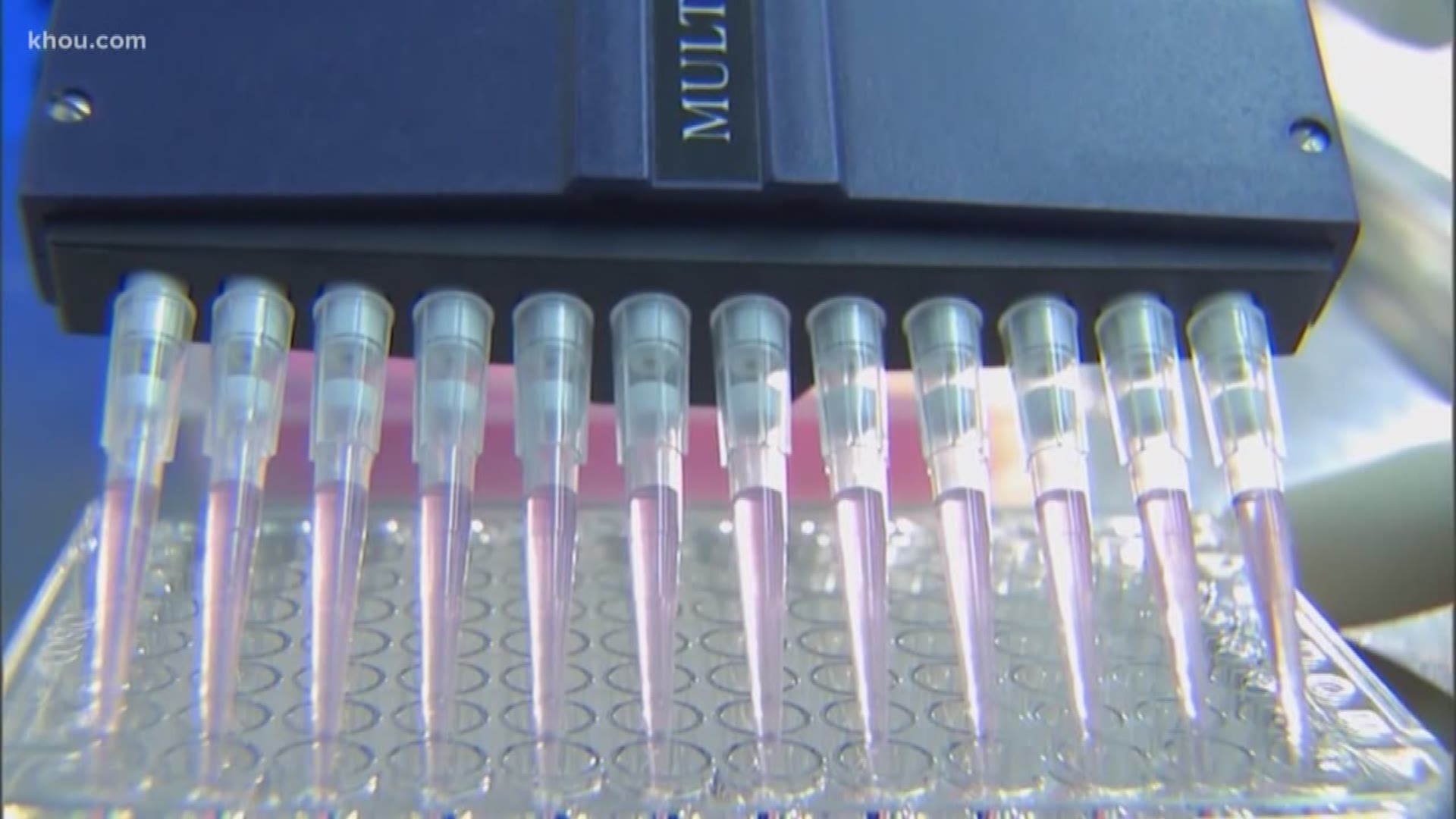HOUSTON — Experts and officials agree the lack of COVID-19 testing has led to an under-reporting of cases.
This is true throughout the country and also the Greater Houston area.
Galveston County has yet to see its first medically-confirmed case of coronavirus, but health department officials said they think it’s probably already there.
“We don’t know. We think they are here,” Galveston County health authority Dr. Phillip Keiser said. “I wouldn’t be surprised if we got our first test positive tonight or tomorrow.”
Nearly all of the school districts in the county have been closed in expectation of possible confirmed cases and to reduce the potential of community spread.
Testing for COVID-19 in the U.S. has been a problem from the start.
The Centers for Disease Control and Prevention first rejected the tests provided by the World Health Organization in favor of its own.
Those tests turned out to be faulty and couldn’t be used.
By the time the corrected tests were produced — we were already in trouble because the disease had started to spread.
When the new ones came, doctors essentially had to apply to test their patients.
Only patients who fit within a narrow scope of criteria could get one under the CDC’s rules.
One of the requirements for a test: The individual must have recently traveled internationally.
All those confirmed cases we saw in Harris and Fort Bend counties from that cruise in Egypt were obtained when those rules were still in place.
Local officials re-enforced the message that cases in Harris and Fort Bend counties were all travel-related and there was no evidence of community spread.
“This is of low risk and there is no indication of any community spread, in Houston, Harris County, Fort Bend and the region,” Houston Mayor Sylvester Turner said at the time.
This week, the rules for testing changed and there are now more tests available.
On Thursday, we learned that not every county is managing the tests the same.
The testing strategy in Montgomery County has been working.
“Ideally, the testing would be like how Montgomery County is doing it,” Keiser said. “You have a problem, you go to your doctor, he orders the test, if it comes back positive, they contact the health department.”
The Montgomery County Health District said since Monday commercial labs have been processing patient samples.
Testing is being performed at private offices, clinics, urgent cares and hospitals.
In Galveston County, UTMB has developed a test that Keiser said is operating on a limited scale of about 20 patients a day.
The rest of its samples are sent to the Houston Health Department.
Health officials in Fort Bend County were unsure if private medical professionals were currently testing for the virus.
The Houston Health Department said it did not know if private medical professionals were currently testing.
Harris County health officials did not respond to questions about possible testing by private professionals and facilities.
We asked each of the county’s health department’s how many tests have been performed in total since all of this started.
Montgomery County said it has tested 18 people since February.
Seven were negative and the health district is still waiting on the remainder of the results.
The health district said other tests have been performed privately and it does not track those.
Galveston County health officials say they will only disclose presumptive positive cases and not the total number of tests it has performed.
Health departments in Harris County, Houston and Fort Bend County released a statement saying they will not disclose the number of patients they have tested until this point, claiming the information would “lead to misinformation, which can create unnecessary, often confused, alarmed public reaction.”
Get complete coverage of the coronavirus by texting 'FACTS' to 713-526-1111.
Coronavirus symptoms
The symptoms of coronavirus can be similar to the flu or a bad cold. Symptoms include a fever, cough and shortness of breath, according to the Centers for Disease Control.
Most healthy people will have mild symptoms. A study of more than 72,000 patients by the Centers for Disease Control in China showed 80 percent of the cases there were mild.
But infections can cause pneumonia, severe acute respiratory syndrome, kidney failure and even death, according to the World Health Organization. Older people with underlying health conditions are most at risk.
The CDC believes symptoms may appear anywhere from two to 14 days after being exposed.
Human coronaviruses are usually spread through
- The air by coughing or sneezing
- Close personal contact, such as touching or shaking hands
- Touching an object or surface with the virus on it, then touching your mouth, nose or eyes before washing your hands.
Help stop the spread of coronavirus
- Stay home when you are sick.
- Eat and sleep separately from your family members
- Use different utensils and dishes
- Cover your cough or sneeze with your arm, hot your hand.
- If you use a tissue, throw it in the trash.
Lower your risk
- Wash your hands often with soap and water for at least 20 seconds. If soap and water are not available, use an alcohol-based hand sanitizer.
- Avoid touching your eyes, nose, and mouth with unwashed hands.
- Avoid close contact with people who are sick.
- Clean and disinfect frequently touched objects and surfaces.
- If you are 60 or over and have an underlying health condition such as cardiovascular disease, diabetes or respiratory illnesses like asthma or COPD, the World Health Organization advises you to try to avoid crowds or places where you might interact with people who are sick.

